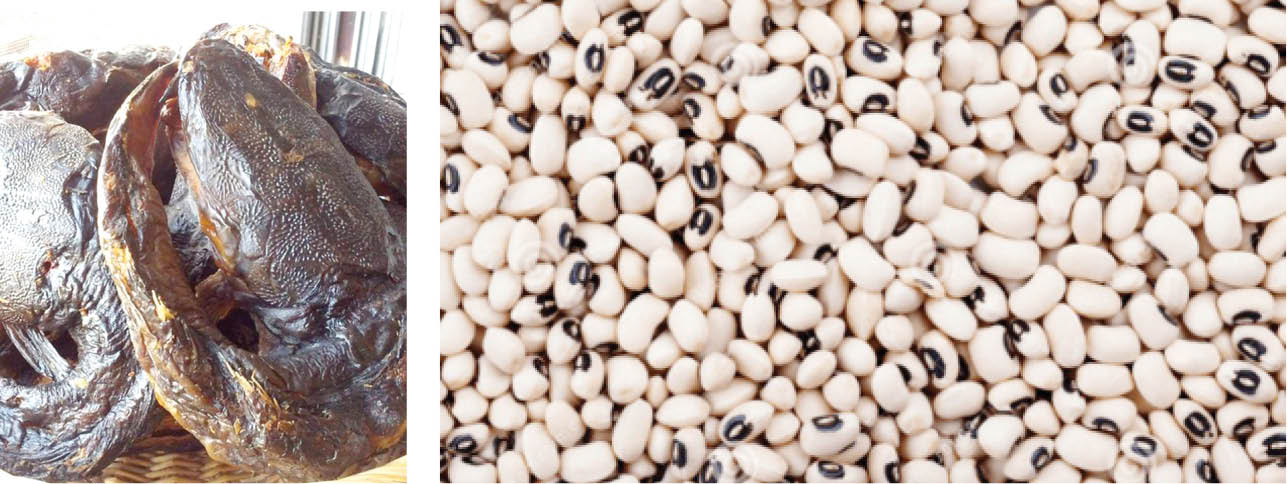Any attempt to export smoked fish to the United States and beans to European Union countries will meet a brick wall. Also, groundnut, hibiscus and maize have various issues with mycotoxins and aflatoxin, which do not meet some countries’ specifications.
In 2015, the European Union (EU) banned the importation of Nigeria’s dried beans because it contained high level of pesticide considered dangerous to human health.
- Kagara abduction: Four bandits swapped with freed victims
- Restoring Jangali, Haraji in northern Nigeria will end insecurity – Prof. Hamman
Unfortunately, the ban was extended for two years due to “failure to implement EU’s food safety action plan submitted since 2018.’’
In 2018, Mexico banned Nigeria’s hibiscus (zobo) because of the issue of trogoderma granaries (a stored product pest of economic importance) found in the product shipped from the country.
Again, in March 2018, the United States placed a ban on Nigeria’s processed (smoked fish) because of administrative failures to provide the basic information required.
Many other products were rejected simply because of lack of standard as there was no proper coordination among regulatory agencies that were supposed to provide support to exporters, who boycotted standards.
These embarrassments recently forced the federal government to inaugurate a “Standing Inter-ministerial Technical Committee on Agro Zero Reject Initiative’’ to address issues from the rejection of some of the country’s agricultural produce abroad.
The committee, which was inaugurated by the Minister of Agriculture and Rural Development, Alhaji Mohammad Sabo Nanono last Thursday in Abuja, is chaired by Dr Oyeleke Razak, a senior director in the ministry.
Alhaji Nanono blamed ‘policy looters’ for circumventing rules and regulations regarding export.
“We should avoid the embarrassment of rejections in the future and strengthen our regulatory/inspection authorities to ensure that they live up to their mandates. Our desire for standard agricultural products and non-oil exports means there will be a vigorous pursuit of investment in quality control and standardisation.
“In pursuance of this, my ministry, in collaboration with the relevant stakeholders, is committed not only to food security but wholesome, foods of high quality acceptable for local consumption and export,’’ he said.
He stressed that the country’s drive for export revenue could not be achieved if what we are producing as a notion cannot meet international food certification standards.
“This is a source of concern to right-thinking Nigerians, particularly the ministries, departments and agencies charged with the responsibility of producing and certifying our produce for export to find a lasting solution to this menace.
“Do not also forget that whatever is being rejected elsewhere could be what we are consuming locally, putting our health into jeopardy by not paying attention to quality assurance,’’ he added.
The director-general of the Nigerian Agricultural Quarantine Service (NAQS), the agency regulating exports, Dr Vincent Isegbe, said various studies revealed that the problem was usually from bulk buyers and merchants, not at the farm gates.
Isegbe said the ban was occasioned by an export control gap, which allowed the shipping of dried beans with pesticide residues higher than the permissible threshold. He mentioned that the results of the extensive fieldwork and laboratory analyses done by the NAQS showed that the challenge of high pesticide residue in Nigerian beans was not from the farm.
He explained that the beans samples collected from the farms had low pesticide residues -beneath the maximum residue level (MRL) of Nigeria’s trading partners -while samples collected from the warehouses had high pesticide residues, above the MRL.
According to him, this wide differential indicates that high pesticide use is traceable to the bulk buyers, aggregators and exporters. In an attempt to protect their stock against weevils and other storage pests, these set of actors usually lace their beans with pesticides liberally, thereby raising the pesticide residues in the commodity above the MRL and unwittingly rendering them ineligible for export.
He reiterated that the NAQS was carrying out an intensive public awareness on the dangers of indiscriminate use of pesticides.
Dr Isegbe said the agency’s message on integrated pest management, the proper use of pesticides and good agricultural practices (GAP) is breaking through to farmers, off-takers, warehouse owners and exporters in the beans-producing belt and across the country.
He expressed hope that a shift from synthetic pesticides to bio-pesticides and organic agriculture among agricultural value chain players would bring the country closer to the point when it can dominate the global cowpea market and other markets, where it can assert its comparative advantage.

 Join Daily Trust WhatsApp Community For Quick Access To News and Happenings Around You.
Join Daily Trust WhatsApp Community For Quick Access To News and Happenings Around You.


